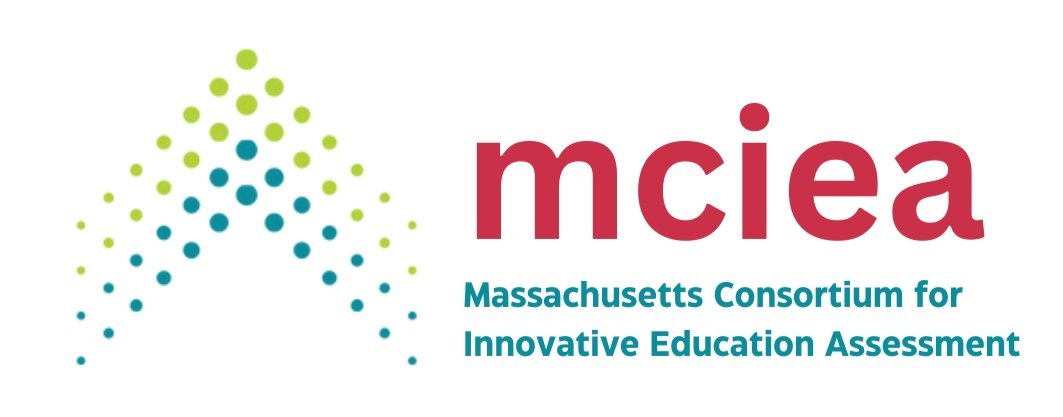“When you’re writing about something you care about, you can showcase your skills and your strengths, and you also feel more inspired, and you work harder.”
Frequently Asked Questions
Generated by Massachusetts citizens Answered by consortium teachers, students, and MCIEA staff
-
Performance tasks are more equitable than standardized assessments because they provide more inclusive opportunities for all students to demonstrate what they know and can do in ways that honor their diverse needs and strengths. Performance assessment is particularly beneficial for English learners and students with disabilities in part because of the flexibility in how students demonstrate what they know and can do. Furthermore, formal accommodations, such as transcription, read aloud, assistive technology, and bilingual dictionaries, would be provided for students, just as they are in other testing scenarios (e.g., MCAS accessibility and accommodations).
Unlike standardized assessments, which generally entail rigid formats and decontextualized content, high quality performance tasks draw on students’ experiences and interests, enable student voice and choice, involve collaboration, and are open-ended and relevant to the real world. By prioritizing equity, authenticity, agency, and accessibility, performance assessment creates more ways for students to engage in and demonstrate their learning and in doing so, enables a more equitable measurement of student learning.
-
Performance tasks are carefully designed to provide students with the necessary support to succeed, without assuming that all students will complete them independently. Instead, teachers support students by guiding them through the process (e.g., clarifying instructions, offering feedback, or helping them access resources). Most performance tasks also involve collaboration among peers. This scaffolding allows students to engage with material at their level and mirrors real-world scenarios where people often seek guidance or collaborate. Ultimately, however, the final product or performance is individualized, demonstrating each student’s knowledge and skills in a way that allows for independent assessment. By emphasizing 21st century skills like collaboration and critical thinking, these tasks prepare all students - not just a select few - for the complexities of real-world challenges they’ll face beyond the classroom.
-
The duration of performance tasks can vary significantly. Some tasks are designed to be completed within a single class period, while others may extend over several weeks or even months. Regardless of their duration, these tasks are always curriculum-embedded and aligned with academic standards. Crucially, performance assessment is not a departure from teaching; it is an integral part of the teaching and learning process itself. All the skills needed to complete a performance assessment (e.g., research, analysis, data collection, synthesis and evaluation, reasoning, problem-solving, collaboration) also need to be built into the preceding teaching and learning, ensuring that students are fully prepared when it comes time to complete the task.
-
Performance tasks are scored by teachers using one-point rubrics aligned to the assessed standards. Teachers are trained and supported in designing and implementing these standards-based tasks and rubrics. Each year, teachers from across the state participate in scoring conferences, where they score student work from other classrooms. Inter-rater reliability is assessed by comparing the consistency of scores between different raters. In other words, do the classroom teachers’ and teachers who are scoring the work without knowing the identity of the student agree? Teacher teams receive the blind teacher scores, discuss why there are any scoring differences with the classroom teacher scores, if any, and consider what changes should be made. Reliability is continually improved through ongoing training and support.
-
Yes, performance assessment is feasible. While its successful implementation requires careful planning, adequate resources, and ongoing support, it can be a highly effective method for gathering evidence to inform teaching and learning. Performance assessment thrives when embraced as a core philosophy, rather than an add-on to existing practices. It means reshaping teaching and learning around real-world, inquiry-based instruction leading to real-world, inquiry-based assessment. While making this shift requires an initial investment, it can become a sustainable and fruitful part of the educational landscape.
Learn more about the benefits of performance assessment, including its impact on college enrollment and persistence.
Read about other states using performance assessment.
Explore this case study sharing learning from schools using capstone and performance assessments to evaluate postsecondary and workforce readiness.
-
Click on the video below to hear about teachers’ and students’ experiences with performance assessment as a part of the MCIEA Portfolios of Performance pilot.
Teachers and 9th grade students share their experiences with performance assessment during a December 2024 school committee meeting. Teachers begin at 20:00; students start at 30:00.

